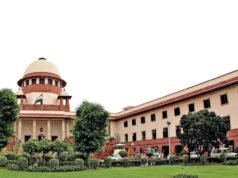Maternity Leave is a Woman’s Right: Supreme Court’s Landmark Verdict
New Delhi, May 23, 2025 – In a transformative ruling, the Supreme Court of India has declared maternity leave an essential part of a woman’s reproductive rights, reinforcing its status as a fundamental entitlement protected under the Constitution. The verdict, delivered by a bench of Justices Abhay S. Oka and Ujjal Bhuiyan, establishes that no employer, whether in the public or private sector, can deny a woman her right to maternity leave, as it is intricately linked to her dignity, autonomy, and equality under Articles 14, 15, and 21 of the Constitution.
The case arose from a petition by a government teacher in Tamil Nadu, who was denied maternity leave for the birth of her child from her second marriage. The denial stemmed from a state regulation limiting maternity benefits to the first two children, citing that the petitioner already had two children from her first marriage. The petitioner clarified that she had not availed maternity leave or benefits for her earlier children and had joined government service only after her second marriage. The court ruled in her favor, striking down the restrictive regulation and affirming that maternity leave is a non-negotiable right tied to a woman’s reproductive choices.
The Supreme Court’s judgment emphasized that maternity leave is not a discretionary benefit but a core component of maternity benefits, which enable women to balance their reproductive roles with their professional lives. The bench stated, “Maternity leave is a fundamental right that upholds a woman’s dignity and autonomy. Denying it undermines the constitutional promise of equality and non-discrimination, as it forces women to choose between motherhood and their careers.”
This ruling expands the scope of the Maternity Benefit Act, 1961, which was amended in 2017 to extend maternity leave to 26 weeks for all women employees and 12 weeks for adoptive mothers. The court clarified that such benefits must be universally applied, irrespective of family structures, including remarriages or single-parent households. It also addressed systemic biases in policies that fail to account for diverse family dynamics, ensuring that women in atypical situations are not penalized.
Legal scholars have lauded the verdict for its progressive stance on gender justice. The ruling not only strengthens protections for working mothers but also sets a precedent for challenging outdated regulations that restrict maternity benefits. It underscores the judiciary’s role in safeguarding women’s reproductive autonomy, particularly in the context of evolving societal norms around family and marriage.
Advocate K.V. Muthu Kumar, who represented the petitioner, hailed the decision as a milestone in gender equality. “This judgment is a powerful affirmation of women’s constitutional rights. It ensures that no woman is unfairly denied her entitlements due to rigid or discriminatory policies,” he said.
The decision is expected to prompt a nationwide review of maternity benefit policies to align with the court’s directive. It also sends a strong message to employers and policymakers about the need to prioritize women’s rights in the workplace. By linking maternity leave to reproductive rights, the Supreme Court has paved the way for a more inclusive and equitable framework for working women across India.
Literal Law News Service
[Source: Adapted from Supreme Court ruling reported on LiteralLaw, May 23, 2025]










